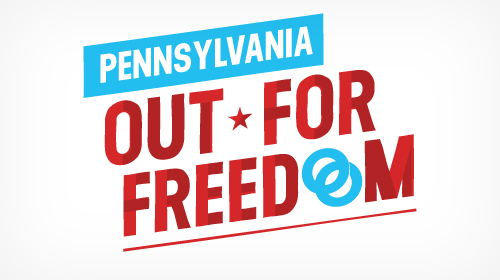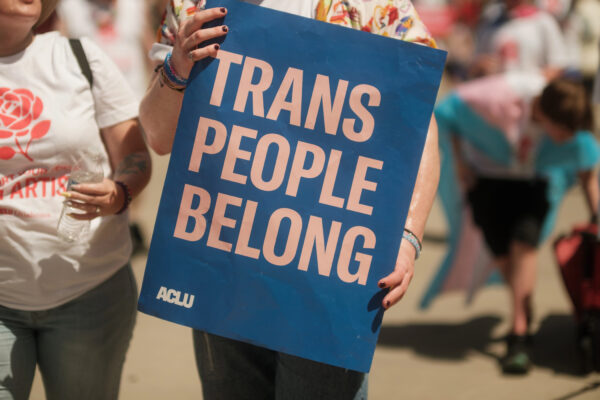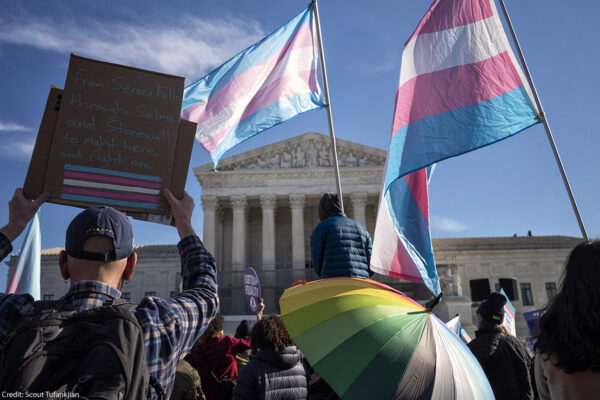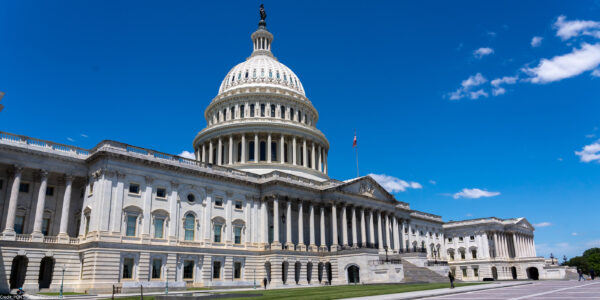
Today, the ACLU launched three new federal marriage cases – in Pennsylvania, North Carolina, and Virginia (this last as co-counsel with Lambda Legal). These cases are step two of our two-pronged, post-DOMA, post-Prop 8 plan for winning the freedom to marry nationwide.
The U.S. Supreme Court's decisions striking down DOMA and restoring marriage for same-sex couples in California are milestones on our journey towards the freedom to marry for the entire country, but of course much remains to be done. Here's a look at the next steps:
First, we'll work to improve the map of the country by winning the freedom to marry in as many states as possible. The ACLU has been a leader on this front since bringing our first marriage lawsuit in 1970 and we've been deeply involved in opening marriage up to same-sex couples in each of the 13 states plus the District of Columbia that now have marriage equality. Our goal is at least 20 states with the freedom to marry by the end of 2016, and we are working towards that goal using four different advocacy tools:
- Lobbying in state legislatures. We're working to pass freedom-to-marry laws in state legislatures, with a current focus on Hawaii, New Jersey, and Illinois. We have lobbyists in every state legislature and we have joined forces with our coalition partners to take advantage of the demise of DOMA to push for the passage of fair marriage laws.
- Organizing ballot campaigns. We need to repeal some of the 29 state constitutional amendments that exclude same-sex couples from marriage, building on our movement's amazing successes at the ballot box last year in Maine, Maryland, and Washington. Our immediate goals are to put the freedom to marry into state constitutions in Oregon (in 2014) and Nevada (in 2016), and we are working with state and national partners to build these campaigns.
- Litigating in state court. We're also working to persuade state courts that discriminatory marriage laws violate state constitutional protections. The ACLU is pursuing such cases pending in New Mexico (as co-counsel with the National Center for Lesbian Rights) and in Illinois (as co-counsel with Lambda Legal). Since these cases raise claims only under state law, and not federal law, the state supreme courts will have the last word and our opponents can't try to get the U.S. Supreme Court to overturn any favorable ruling we may get.
- Working with right-of-center voices. Conservative voices are the next frontier in building public support for the freedom to marry, so the ACLU has hired top Republican strategists to bring right-of-center voices both to the state legislative and ballot campaigns and to the broader effort to generate greater public support for fair marriage laws.
In the second prong of our post-DOMA strategy, we will litigate federal court cases that will bring the marriage issue back to the U.S. Supreme Court, which has the power to create a federal solution by declaring that the entire country must have fair marriage laws. The Supreme Court ducked the issue of the constitutionality of Prop 8 – and thereby the federal solution – just a couple of weeks ago, but it's already clear that this core constitutional issue will get back to the Court within a few years. Even before today's announcement of the ACLU's federal marriage lawsuits, there were seven cases with federal marriage claims pending all around the country.
Today we are adding three more cases to this mix in order to ensure that strong, well-resourced cases are presented to the federal appeals courts most likely to give the issue a fair hearing. The Pennsylvania case will bring ten couples in long-term committed relationships plus one widow before the Third Circuit Court of Appeals. Check out this moving video about the widow plaintiff in the Pennsylvania case.
In North Carolina, we're adding marriage claims to our existing case seeking second parent adoptions for families headed by same-sex couples. In light of the Supreme Court's focus in United States v. Windsor on how children are harmed by the exclusion of same-sex couples from federal recognition of their parents' marriages, it's clear that the harms at the center of our North Carolina case will resonate with the Court. There are great stories here as well. Both the North Carolina case and the case we will file in Virginia, in partnership with Lambda Legal, will ensure that the core constitutional arguments we make are seriously considered by the Fourth Circuit Court of Appeals.
But the second prong of our plan – the federal marriage litigation – has the best chance of succeeding if the first prong – winning more marriage states through other means – makes significant gains over the next few years. That's why the ACLU has launched an extraordinary fundraising campaign, Out for Freedom, to raise $10 million in special funds to ensure the success of our state-by-state marriage initiative. With these resources in place we will expand fair marriage laws across the country and relegate discrimination against gay and lesbian couples to the dustbin of history.
Learn more about marriage for same-sex couples: Sign up for breaking news alerts, follow us on Twitter, and like us on Facebook.



